Volume 1-8 (2009-16)
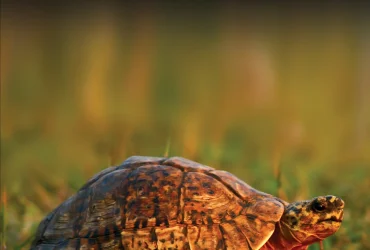 v3i1.38
v3i1.38ISSN: 1800-427X (print)
eISSN: 1800-427X (online)
DOI:10.47605/tapro.v3i1.38
Submitted date: 01 April 2011
Accepted date: 13 June 2011
Published date: 30 July 2011
Pp. 11–14.
ON A RARE, SOUTH INDIAN BURROWING SNAKE Platyplectrurus trilineatus (BEDDOME, 1867)
S.R. Ganesh*
*E-mail: snakeranglerr@gmail.com
Abstract
Examination of five juvenile preserved specimens of Platyplectrurus trilineatus, an endemic, poorly-known Uropeltid snake species from the Western Ghats Mountains of Southwestern India provided further insights into its taxonomy. The sample examined here agreed well with the existing descriptions in literature in colouration and most aspects of scalation but had larger range of ventral scale count and smaller supraocular relative to prefrontal. Character definition (in the case of ventrals) and ontogenic variation (in the case of supraocular size) might have possibly created these discrepancies. These differences indicate that a better sampling of both specimens and characters would throw more light on this species.
Key words : morphology, characterization, lepidosis, habitus, colouration
Section Editor: Gernot Vogel
eISSN: 1800-427X (online)
DOI:10.47605/tapro.v3i1.38
Submitted date: 01 April 2011
Accepted date: 13 June 2011
Published date: 30 July 2011
Pp. 11–14.
ON A RARE, SOUTH INDIAN BURROWING SNAKE Platyplectrurus trilineatus (BEDDOME, 1867)
S.R. Ganesh*
*E-mail: snakeranglerr@gmail.com
Abstract
Examination of five juvenile preserved specimens of Platyplectrurus trilineatus, an endemic, poorly-known Uropeltid snake species from the Western Ghats Mountains of Southwestern India provided further insights into its taxonomy. The sample examined here agreed well with the existing descriptions in literature in colouration and most aspects of scalation but had larger range of ventral scale count and smaller supraocular relative to prefrontal. Character definition (in the case of ventrals) and ontogenic variation (in the case of supraocular size) might have possibly created these discrepancies. These differences indicate that a better sampling of both specimens and characters would throw more light on this species.
Key words : morphology, characterization, lepidosis, habitus, colouration
Section Editor: Gernot Vogel
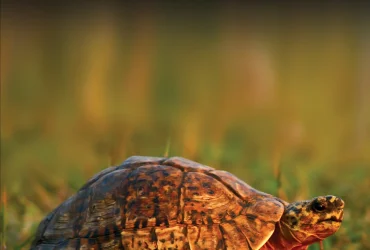 v3i1.37
v3i1.37ISSN: 1800-427X (print)
eISSN: 1800-427X (online)
DOI:10.47605/tapro.v3i1.37
Submitted date: 24 March 2010
Accepted date: 13 June 2011
Published date: 30 July 2011
Pp. 5–10.
REPORT OF SOME NOTEWORTHY SPECIMENS AND SPECIES OF HERPETOFAUNA FROM SOUTH-EAST INDIA
S.R. Ganesh* & S.R. Chandramouli
*Corresponding author. E-mail: snakeranglerr@gmail.com
Abstract
We report abnormal individuals of Ramanella variegata, Lycodon aulicus (sensu lato), Bungarus caeruleus which exhibited variation from the ‘typical morphs’ of their respective species. Also we report a rarely recorded species Polypedates cf. leucomystax (from south India), from the Mannampandal area of Tamil Nadu. These observations based on voucher photographs are presented for the first time.
Key words : Morph, aberration, variation, phenotypic plasticity, polymorphism
Section Editor: Gernot Vogel
eISSN: 1800-427X (online)
DOI:10.47605/tapro.v3i1.37
Submitted date: 24 March 2010
Accepted date: 13 June 2011
Published date: 30 July 2011
Pp. 5–10.
REPORT OF SOME NOTEWORTHY SPECIMENS AND SPECIES OF HERPETOFAUNA FROM SOUTH-EAST INDIA
S.R. Ganesh* & S.R. Chandramouli
*Corresponding author. E-mail: snakeranglerr@gmail.com
Abstract
We report abnormal individuals of Ramanella variegata, Lycodon aulicus (sensu lato), Bungarus caeruleus which exhibited variation from the ‘typical morphs’ of their respective species. Also we report a rarely recorded species Polypedates cf. leucomystax (from south India), from the Mannampandal area of Tamil Nadu. These observations based on voucher photographs are presented for the first time.
Key words : Morph, aberration, variation, phenotypic plasticity, polymorphism
Section Editor: Gernot Vogel
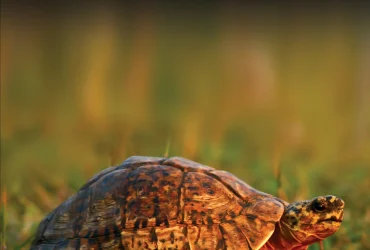 v3i1.36
v3i1.36ISSN: 1800-427X (print)
eISSN: 1800-427X (online)
DOI:10.47605/tapro.v3i1.36
Published date: 30 July 2011
Pp. 1–4
EDITORIAL : A splitter’s systematics of writing: scientific writing and writing English are separate issues and this has implications
Yehudah L. Werner
Section Editor: Taprobanica, the journal of Asian Biodiversity
Publishing is an essential component of scientific activity and an increasing number of well-known forces, but including also editors, press us to publish much. Recently, refinement of some of these forces coerces at least some of us to publish not merely in peer-reviewed journals but in those that are hardest to penetrate. My personal opinion that this is to the detriment of science does not help. Publishing well is difficult. Here I try to analyze part of the difficulty and to conclude partial remedies.
eISSN: 1800-427X (online)
DOI:10.47605/tapro.v3i1.36
Published date: 30 July 2011
Pp. 1–4
EDITORIAL : A splitter’s systematics of writing: scientific writing and writing English are separate issues and this has implications
Yehudah L. Werner
Section Editor: Taprobanica, the journal of Asian Biodiversity
Publishing is an essential component of scientific activity and an increasing number of well-known forces, but including also editors, press us to publish much. Recently, refinement of some of these forces coerces at least some of us to publish not merely in peer-reviewed journals but in those that are hardest to penetrate. My personal opinion that this is to the detriment of science does not help. Publishing well is difficult. Here I try to analyze part of the difficulty and to conclude partial remedies.
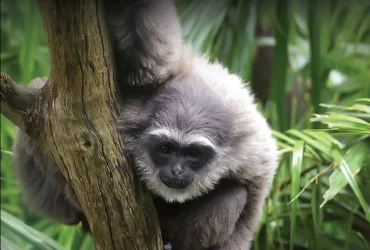 v2i2.35
v2i2.35ISSN: 1800-427X (print)
eISSN: 1800-427X (online)
DOI:10.47605/tapro.v2i2.35
Submitted date: 06 March 2011
Accepted date: 22 April 2011
Published date: 30 April 2011
Pp. 105-108.
Utilization of food plant species and abundance of hanuman langurs (Semnopithecus entellus) in Pench Tiger Reserve, Madhya Pradesh, India
Aniruddha Majumder*, Abinash Parida, K. Sankar & Qamar Qureshi
*Corresponding author. E-mail: aniruddha@wii.gov.in
Utilization of food plant species and abundance of hanuman langurs (Semnopithecus entellus) were studied between January 2009 and August 2010 in Pench Tiger Reserve, Madhya Pradesh (78° 55’ to 79° 35' E and 21° 8' to 22° N), India.
Section Editor: Lee Harding
eISSN: 1800-427X (online)
DOI:10.47605/tapro.v2i2.35
Submitted date: 06 March 2011
Accepted date: 22 April 2011
Published date: 30 April 2011
Pp. 105-108.
Utilization of food plant species and abundance of hanuman langurs (Semnopithecus entellus) in Pench Tiger Reserve, Madhya Pradesh, India
Aniruddha Majumder*, Abinash Parida, K. Sankar & Qamar Qureshi
*Corresponding author. E-mail: aniruddha@wii.gov.in
Utilization of food plant species and abundance of hanuman langurs (Semnopithecus entellus) were studied between January 2009 and August 2010 in Pench Tiger Reserve, Madhya Pradesh (78° 55’ to 79° 35' E and 21° 8' to 22° N), India.
Section Editor: Lee Harding
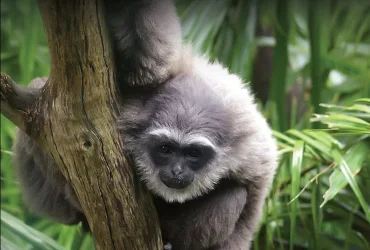 v2i2.34
v2i2.34ISSN: 1800-427X (print)
eISSN: 1800-427X (online)
DOI:10.47605/tapro.v2i2.34
Submitted date: 07 October 2010
Accepted date: 22 January 2010
Published date: 30 April 2011
Pp. 104.
Hemidactylus parvimaculatus Deraniyagala, 1953 (Reptilia : Gekkonidae) feeds on Ramanella variegata (Stoliczka, 1872) (Amphibia : Microhylidae) in Sri Lanka
D.M.S. Suranjan Karunarathna & A.A. Thasun Amarasinghe*
*Corresponding author. E-mail: thasun.taprobanica@gmail.com
The gecko genus Hemidactylus comprises seven species/sub-species in Sri Lanka and is thus the second largest gecko genus of the island. Here we record first observation of amphibian predation by H. parvimaculatus in an anthropogenic habitat in Sri Lanka.
Section Editor: Aaron Bauer
eISSN: 1800-427X (online)
DOI:10.47605/tapro.v2i2.34
Submitted date: 07 October 2010
Accepted date: 22 January 2010
Published date: 30 April 2011
Pp. 104.
Hemidactylus parvimaculatus Deraniyagala, 1953 (Reptilia : Gekkonidae) feeds on Ramanella variegata (Stoliczka, 1872) (Amphibia : Microhylidae) in Sri Lanka
D.M.S. Suranjan Karunarathna & A.A. Thasun Amarasinghe*
*Corresponding author. E-mail: thasun.taprobanica@gmail.com
The gecko genus Hemidactylus comprises seven species/sub-species in Sri Lanka and is thus the second largest gecko genus of the island. Here we record first observation of amphibian predation by H. parvimaculatus in an anthropogenic habitat in Sri Lanka.
Section Editor: Aaron Bauer
Hubungi Kami
The ultimate aim of the journal is to provide an effective medium for communication of the latest and best scientific information.
Copyright © 2020 Taprobanica. All Rights Reserved
Jasa Pembuatan Website by IKT




